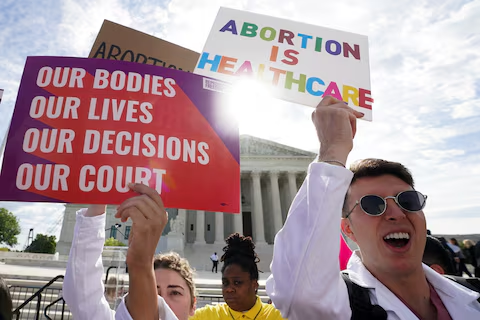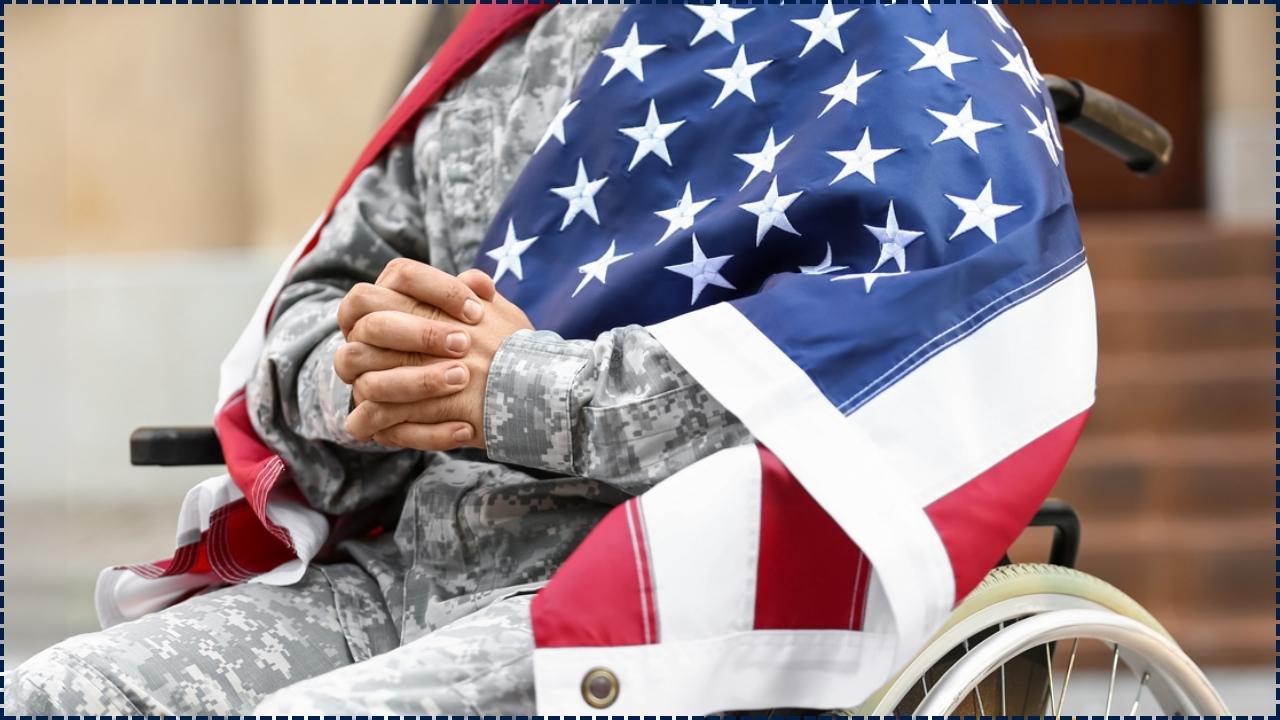In August 2025, the Department of Veterans Affairs (VA) announced a new, stricter abortion policy, which has sparked heated debates and raised serious concerns. The policy limits access to abortion care, effectively ending the ability for veterans and their families to access abortion services for reasons of rape, incest, or health risks—except when the mother’s life is in danger. This policy shift has ignited a storm of legal challenges, protests, and reactions from veterans and advocacy groups alike.

This article will provide a comprehensive breakdown of the VA’s new abortion ban, what it means for veterans, their families, and their rights, and how it fits into the broader discussion on reproductive rights in the U.S. From understanding the policy to practical advice on what steps you can take if affected, we’ve got you covered.
VA’s New Strict Abortion Ban
| Key Fact | Details |
|---|---|
| New Policy | VA restricts abortion services to only life-threatening situations |
| Affected Groups | Veterans and eligible dependents |
| Previous Policy | Allowed abortions in cases of rape, incest, or health risks to the mother |
| Implementation Date | Proposed rule published in Federal Register on August 4, 2025 |
| Public Comment Period | Ends September 3, 2025 |
| Reproductive Rights Advocates’ Reaction | Widespread opposition, with calls for legal action and public protests |
The VA’s new abortion policy is a significant and controversial change that will have far-reaching effects on veterans and their families. As the debate over reproductive rights continues to evolve, it’s essential to stay informed and take action. By participating in the public comment period, joining advocacy efforts, and seeking legal support, you can help ensure that veterans receive the comprehensive healthcare they deserve.

What Has Changed with the VA’s Abortion Policy?
Background on the Policy Shift
For many years, the VA provided abortion services in cases of rape, incest, or where continuing a pregnancy posed a health risk to the mother. However, as of August 2025, the VA narrowed this access. The new policy restricts abortion to cases where a pregnancy poses a life-threatening risk to the mother, eliminating earlier exceptions for rape and incest.
This change was implemented after legal concerns were raised following the 2022 Supreme Court ruling that overturned Roe v. Wade. The VA justified the policy shift by stating it was necessary to align with federal and state regulations and avoid creating a federal entitlement to abortion.
Why the Change?
The policy is driven by the desire to comply with the current legal environment, which has become more fragmented in terms of abortion laws. After the Supreme Court ruling, states gained more autonomy to pass their own abortion laws, and the federal government, including entities like the VA, is now trying to balance state laws with federal regulations. VA officials argued that the expanded access to abortion services, which was implemented in 2022, overstepped federal authority.
Advocates for reproductive rights see this as a direct attack on veterans’ healthcare rights, especially those who are already vulnerable due to their service and the hardships they face in civilian life.
How This Affects Veterans and Their Families
Limited Access to Abortion Services
The new restrictions will have a far-reaching impact on veterans and their families. Many veterans who would have been able to access abortion care through VA facilities will now need to seek services outside the VA system. This can mean additional financial burdens, such as paying for abortion services at private clinics, as well as dealing with longer waiting periods and logistical barriers, particularly in rural or underserved areas.
For veterans already facing mental and emotional health challenges, the added stress of navigating a fragmented healthcare system could further exacerbate feelings of frustration and alienation from the institution that was meant to support them.
Emotional and Psychological Toll
The policy change also has significant implications for the mental health of veterans. For veterans who have experienced trauma—such as rape or incest—being denied an abortion can deepen the psychological and emotional wounds. Experts are concerned that increased stress, anxiety, and even depression will follow this denial of care. Mental health professionals have warned that this could lead to a rise in veteran suicides or further harm those already dealing with PTSD, trauma, and depression.
Stories from Veterans
Veterans who are directly impacted by this policy have shared heartbreaking stories about their struggles. One veteran, who wished to remain anonymous, stated: “I thought the VA was here for us when we needed help. I served this country, and now I feel abandoned. This change just makes it harder for people like me to get the care we deserve.” These personal accounts highlight the human toll of this policy shift.
The Bigger Picture: How Does This Relate to Other Healthcare Programs?
The VA vs. Other Federal Healthcare Systems
While the VA is restricting abortion access, other federal healthcare programs like Medicaid or the Indian Health Service (IHS) handle abortion services differently. Medicaid in some states covers abortion services as part of their benefits, depending on the state’s laws. Similarly, IHS, which serves Native American populations, provides reproductive healthcare services, including abortion, in accordance with federal guidelines.
The inconsistency between these programs highlights a growing divide in how reproductive rights are treated across federal healthcare programs, and it raises important questions about the future of equal access to healthcare for all Americans.
What You Can Do
Stay Informed and Engage in the Public Comment Process
The VA’s new abortion policy is still a proposed rule, which means there’s still time to voice your opinions. The public comment period is open until September 3, 2025, and anyone affected by the change—whether veterans, dependents, or advocates—can submit feedback. This is your chance to speak out against or support the policy.
You can submit your comments through the Federal Register or get involved with advocacy organizations that are challenging the policy.
Join Advocacy Efforts
Organizations like the Center for Reproductive Rights, Planned Parenthood, and NARAL Pro-Choice America are already leading efforts to challenge this policy change. Veterans and their families are encouraged to join these efforts, whether through petitions, protests, or fundraising campaigns to provide assistance for those impacted by the ban.
Seek Support from Legal Resources
If you are struggling to access abortion services or are confused about the legal implications of the policy, many legal organizations offer free resources to help you navigate your options. Groups like ACLU and Lambda Legal provide legal consultations and support to help veterans assert their rights.
Related Links
Amazon Recall Triggers Nationwide Alert After Fatal Safety Concern
Kia Recalls Over 200,000 Telluride SUVs in the US Over Fire Risk
60% of Millennials and Gen Z Admit Their Social Lives Are Wrecking Their Finances
The Global Perspective on Abortion Rights
While the debate over abortion continues to intensify in the U.S., many countries around the world have more progressive approaches to reproductive rights. In Canada, for example, abortion has been fully legal and accessible for decades, with no restrictions based on reasons for the procedure. Other countries, like Sweden and Australia, have similar protections in place, ensuring that abortion is a fundamental right.
The U.S. stands out for its patchwork of state-level regulations, leading to disparities in access to care. This makes it more difficult for veterans and military families to access essential healthcare depending on where they live.
FAQs
Why is the VA changing its abortion policy?
The VA is changing its policy to comply with legal concerns following the 2022 Supreme Court ruling that overturned Roe v. Wade.
How does this affect veterans and their families?
Veterans and their families will no longer be able to access abortion services through VA facilities for reasons of rape, incest, or other non-life-threatening conditions.
What can I do if I am affected by this policy?
You can engage in the public comment period to voice your opinions, join advocacy groups fighting for reproductive rights, and seek support from legal organizations that can help navigate the new rules.
What are advocacy groups doing about this?
Advocacy groups like Planned Parenthood and the Center for Reproductive Rights are actively working to challenge the policy and offer support to affected individuals.





